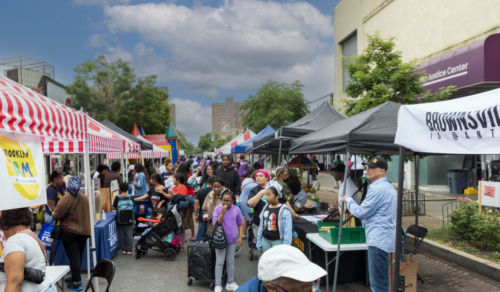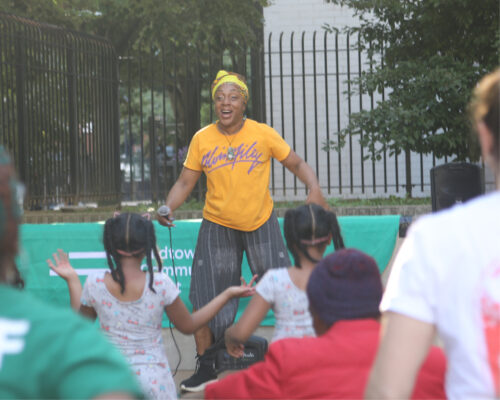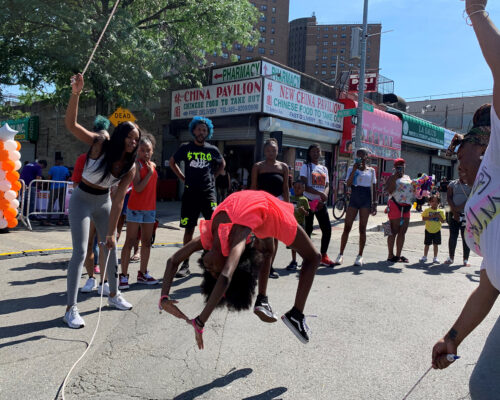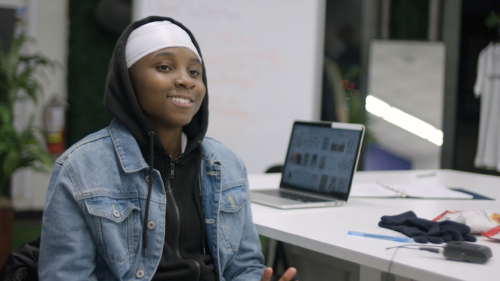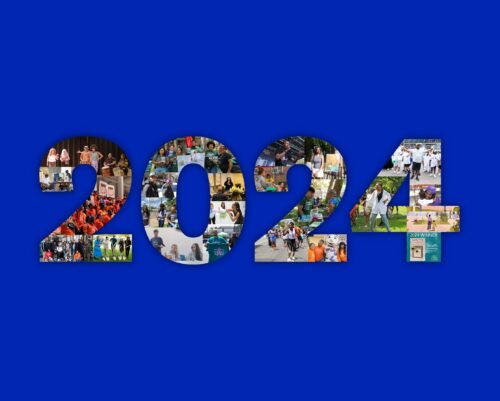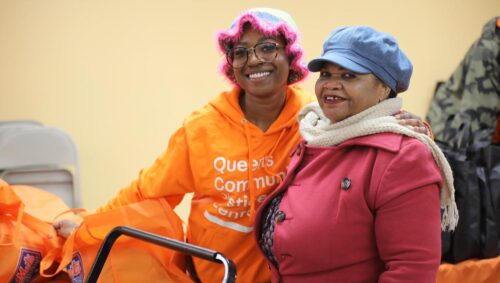Creates a safer, stronger future for Brownsville by investing in youth, transforming public spaces, and reimagining justice.
The Brownsville Community Justice Center improves public safety in Brownsville, Brooklyn, by investing in local residents, transforming public spaces, and reimagining the criminal justice process.
The Community Justice Center works to reduce crime and incarceration, strengthen trust in the justice system, and promote vibrant civic life in Brownsville, Brooklyn. Programming at the Brownsville Community Justice Center centers on three key elements: alternatives to incarceration, youth development, and reimagining public space.
This holistic approach guides all of the services and opportunities offered at the Community Justice CEnter which are uniquely designed to uplift and empower Brownsville’s youth.
Alternatives to Incarceration
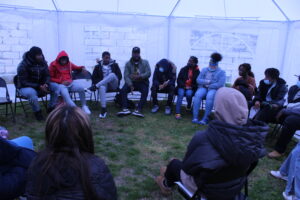
Led by our team of social workers and case managers, the Brownsville Community Justice Center provides judges with alternative sentencing options that steer people away from traditional punishments and toward restorative, community-based solutions. These include short-term social services, community restitution, psychoeducational group sessions, and intensive clinical interventions tailed to each person’s underlying needs.
- The Insight Initiative offers alternative-to-incarceration services for youth and young adults (ages 15-24) residing in Brownsville and East New York. By creating pathways out of the criminal justice system and towards opportunities for education and empowerment, the program addresses the needs of youth at-risk of violence and gang involvement. The initiative uses a transformative justice model that encourages accountability, community contribution, and addressing root causes for each individual.
- Brownsville Keepers is a cornerstone of our youth-centered peacemaking work, utilizing peer facilitation and drawing on traditional Native American circle practices. Youth members are trained in restorative circle-keeping practices, peer-to-peer diversion while receiving services in counseling and youth development. Keepers circles are held for youth aged 10-18 referred by local institutions for offenses such as assault, theft, vandalism, and truancy. In addition, youth participants engage in weekly workshops and training around self-reflection, trauma, conflict resolution, and more.
Youth Development
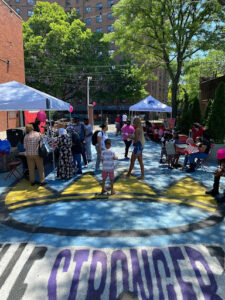
The Brownsville Community Justice Center provides a diverse array of youth development initiatives. By offering positive, pro-social activities, and pathways to education and employment, the Community Justice Center builds stronger futures for young people, increases safety, and prevents crime. Our youth programming is tailored to the interests of each young person with opportunities to gain experience in music production, digital media, fashion, and technology.
- Project L.E.A.D is a six-month empowerment program for young men focused on developing leadership skills and exploring the meaning of masculinity in the Brownsville community. Using a social and emotional learning framework, participants develop the self-awareness and reflection skills needed to become leaders in their communities. Project L.E.A.D creates opportunities for healing from the complex trauma faced by many youth in the Brownsville community and builds unity and empowerment through brotherhood.
- [B]Me mobilizes peers with lived experiences to guide youth involved in the justice system towards positive change. The program aims to support young people in achieving their educational goals while preventing negative outcomes like continued involvement in the juvenile justice system and substance use challenges.
- Brownsville Redirect is an eight-week program exploring the root causes of gun-carrying behaviors, which research shows are often tied to traumatic experiences like being a victim or witness to violence. Weekly sessions alternate between peer-led support circles and workshops focusing on healing, social-emotional learning, community building, and self-identity.
- The Brownsville Youth Leadership Council (BYLC) empowers emerging youth leaders to tackle the challenges of community violence by developing creative solutions to address trauma and improve neighborhood safety. BYLC recruits youth participants representing ten different NYCHA developments to support and inspire unity and heal historical and territorial divides. Over a year-long internship, participants receive training in public policy, healing justice, advocacy, placemaking, and public speaking.
Reimagining Public Space
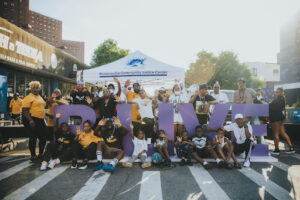
The Brownsville Community Justice Center engages local businesses and community residents in reimagining and redesigning public spaces. Examples include the Belmont Revitalization Project, which aims to transform Belmont Avenue into a thriving business district that is safe, accessible, and welcoming to the community.
Be On Belmont is an annual street festival for the Brownsville community. The event, which has become a beloved neighborhood tradition, opens the corridor up for pedestrians with free music, food, and giveaways.
Osborn Plaza was once a dead-end cul-de-sac adjacent to the Brownsville Community Justice Center that has been reimagined to reflect the community’s needs. Formerly identified by residents as a place with a reputation for violence and crime, Osborn Plaza will become a permanent community space designed in collaboration with residents, youth, and other community-based organizations. Founded in 2015 as a temporary plaza under the Department of Transportation’s Plaza Program, this major street improvement includes crosswalks, seating, lighting, planters, and more.
Watkins Street, once a dead-end cul-de-sac on Belmont Avenue, became an “Open Street” in collaboration with the Brownsville Community Justice Center and the Department of Transportation. Located on the eastern side of Belmont where there are higher storefront vacancies, the area had been known for open drug sale and use. Working with the community to revitalize the area with meaningful community activations has been an important step in community recovery and healing. Now, Watkins Street is home to events and activities like Neighborhood Commons—an opportunity for small business owners in Brownsville to sell their goods—as well as Make Music Day and B-Merry.
Thatford Street is a cul-de-sac on the Belmont Avenue corridor that was recently activated as an Open Street and a vibrant intersection with many active local businesses. Located next to a NYCHA basketball court associated with Langston Hughes Houses, the area has become a hub for activities and community events.
